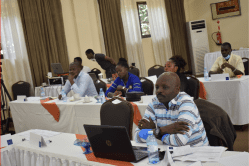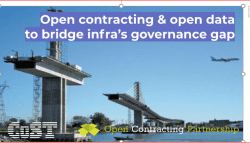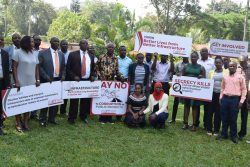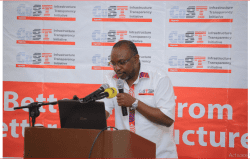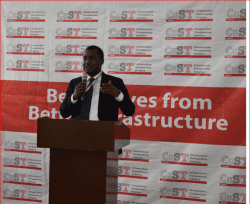
September 22, 2020 10:30 am
Extract from the Interview!
In general we have observed an increase in the number of infrastructure project being disclosed. This wasn’t always the case. We also noticed increased competition in government related business from 4 to 7 bids per tender. Importantly the report also showed that there is a growing national diversity of companies doing business with government on infrastructure related projects. And this is a good thing. Despite the lack of compliance with disclosure requirements between PDEs, we are progressively seeing commitments towards increasing transparency in infrastructure procurement processes.
Our analysis also reveals that when it comes to proactive disclosure, entities seem to focus more on procurement planning while paying less attention to planned activities. Yet, on a wider societal level, failure to implement the planned infrastructure projects (roads, water, power, construction, etc.) undermines the achievement of the much sought-after socio-economic transformation of the country.
Ultimately the proactive disclosure by the entities is generally less and therefore insufficient to help inform stakeholders, notably the private sector to make business decisions
It was also obvious according to the report that low time overruns is an issue. Most projects analysed had time overruns. Time overrun is a condition of failure to complete a project within the schedule. And revealing perhaps, about 98 per cent of projects did not disclose project timelines.
This is in addition to cost overruns also known as cost increase or budget overrun. It is the amount by which actual expenditure exceeds the planned amount. Section 59(2) of the PPDA Act requires PDEs to initiate or continue procurement only once the total funding has been confirmed.
This provision underlines the need for entities to comply with the funding of projects and budget lines for the involvement of contractors. Delivery of projects within the contract amount enables on-time payments to contractors due to budget limitations.
As for transparency the score is still low, suggesting low transparency in procurement and project delivery. Non-disclosure of over half of 41 proactive disclosure data points undermines transparency in procurement and project delivery.
This publication is an extract of the experiences, lessons and what needs to be done to realize fairness, transparency and participation of the private sector in infrastructure projects delivery. For a clearer version of the publication, please retrieve a hard copy of the Daily Monitor, 23rd September 2020.
Please access the full Release via; https://www.cost.or.ug/download/infrastructure-report-reveals-improvements-in-disclosure_monitor-publications-extract-22nd-sept-2020-page-26/

